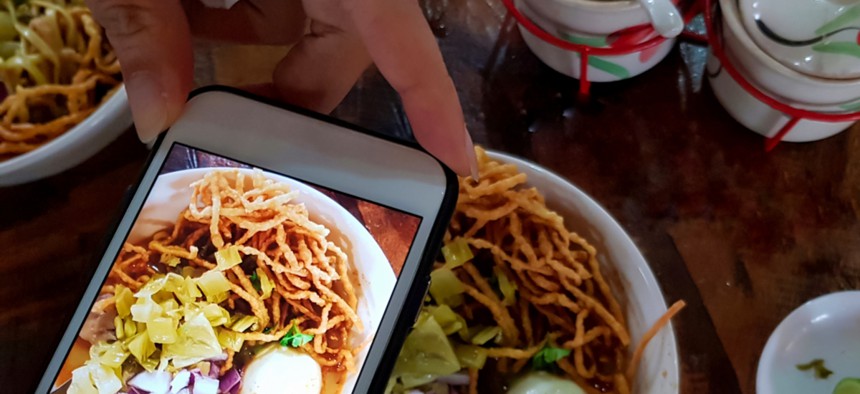This Was the Year I Realized My Brain Belongs to My Phone

ilovephoto_KA/Shutterstock.com
And I feel dumber for it.
This year, I became addicted to and deleted the following apps: Twitter, Hacker News, Reddit, Press (an RSS reader), and Instagram.
My reasoning may sound familiar. I would become mindlessly addicted to an app, checking it anytime my brain began to drift, like whenever I sensed oncoming existential dread or spent 30 seconds at a urinal. The inevitability of these checks would start to make me uncomfortable, so I would uninstall the app. But after each deletion, the same thing would happen with another app, and the cycle would begin again.
This unending process of deletion, addiction, and deletion showed me that the constant presence of my phone has caused my brain to get accustomed to a less thoughtful kind of functioning—distraction. And I feel dumber for it.
You may notice that these apps are not the type specifically designed to be addicting, like Candy Crush, which uses literal images of candy to hook you. Each of my deleted apps has some interesting or enlightening stuff. You can learn a lot from Hacker News, and you can experience joy from a good family Instagram.
The content isn’t important, though. These apps differ in what they show, but all have two things in common: They are constantly updated, and require only superficial attention. That is to say, they are ready-made distractions. It doesn’t matter if it’s a surprising headline or a baby photo. It’s just somewhere for the brain to go. Meanwhile, my deep backlog in Instapaper—an app that saves articles so you can read them later—went unread. Reading an actual article requires more focus and attention than a simple distraction.
This all came to a head when I went three days without a phone.
As I was in the middle of the deletion-addiction-deletion cycle, my phone stopped working. I tried to check a text; it froze up, and would not turn back on. So I waited for a replacement. Three days.
A couple days without a smartphone is the most first-world of problems. That made the degree to which it affected me all the more troubling. It took me a whole day to stop reaching for my pocket whenever I had a slice of mental free time. I could feel my brain wanting to look at something, but nothing in particular. Zoning out seemed scary and unproductive. Most of all, I was lonely. No one to text, no way to check up on what’s happening elsewhere, nowhere else for my brain to be. When my new phone arrived, it was like I had returned to civilization after a month in a silent ashram.
In no way did I miss the actual content. It’s not the shininess of an app, or how compelling the stuff on it is, that made me reach into my pocket as soon as I felt a twinge of boredom. It is just that, like all humans, I am lazy. I usually take the path of least resistance. If my goal is to inform myself, hits of distraction from a phone are the easiest route to feeling like I’ve done it, the same way I could fill myself with junk food and call it dinner. It’s cheap, fast, and provides the satisfaction of completing the goal.
Of course, this satisfaction is hollow. The euphoria of eating a dinner’s worth of potato chips quickly gives way to stomachaches and self-loathing. Likewise, reading 15 headlines in under a minute means I will probably remember none of them.
The best way to eat less junk food is not to limit yourself with raw willpower, but to eat none at all. Eating just one M&M is a lot harder than eating zero. This year, I learned that this is exactly the relationship my brain has with my phone.
Except it’s not realistic for “zero” to be the amount of time I use a phone. Even after my purges, I still have apps that I can’t stop using without losing touch with friends and family, like text and email. I have removed as much digital junk food as possible from the pantry of my phone.
The next step is—to extend the metaphor—to start making healthy meals. That means setting aside phone-free blocks throughout my day, or leaving it at home when I am doing short, basic tasks like getting lunch or doing laundry. Then I might just start thinking again, unless, ooh, an email—





